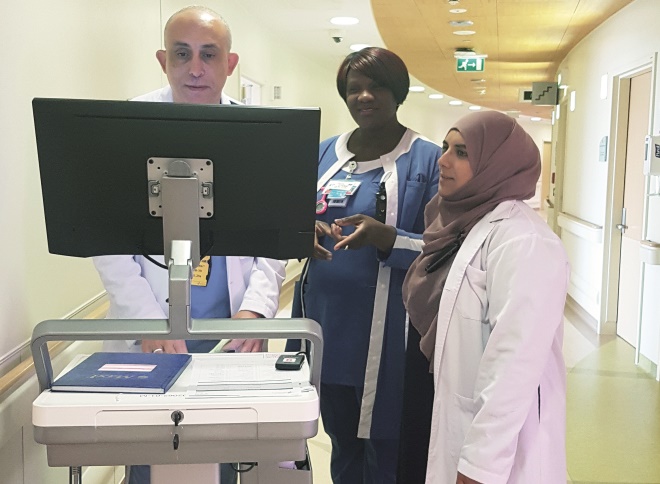
Shutterstock.com
In December 2016, I was offered a position in Qatar at Sidra Medicine, a specialist healthcare service for children and young people, which also offers maternity and gynaecology care for women. The outpatient services at Sidra Medicine were launched on 1 May 2016 and now operates nearly 50 clinics and services. On 14 January 2018, Sidra Medicine welcomed its first inpatient women and children’s services. Its chairperson is her Highness Sheikha Moza bint Nasser and the vice-chair is professor the Lord Darzi of Denham.
The role was to assist the team in developing a new pharmacy service. I accepted the offer and utilised a recruitment agent to help me fulfil the necessary requirements to work as a UK registered pharmacist abroad. To gain my licence in Qatar, the agency requested official papers such as qualification and education certificates. In addition to these, I needed to successfully pass the mandatory Qatar Council for Healthcare Practitioners (QCHP) prometric examination. The registration and licensing department of the QCHP regulates healthcare professionals who wish to work in Qatar. The prometric examination is a computer based assessment of 100 multiple choice questions set over 2.5 hours.
On September 2017, I embarked on a journey from London to Doha in search of a new challenge. I desired to gain experience of working within a foreign country, learning a new culture, while working within my specialist area of women and children’s health.
Working in Qatar has exposed me to the wider world of pharmacy. The skills attained by working abroad is incomparable to that of working within one’s home country. With staff from 87 different nationalities working at Sidra, cultural exposure is limitless. Working as a pharmacist in Qatar is similar to practice in the UK. However, with different backgrounds comes different practices, nevertheless with the right amount of skill and knowledge we work well to provide first class care for our patients.
With the unique skill mix we all aim to obtain the best from international clinical pharmacy practice within a paperless hospital using electronic prescribing and automated medication dispensing systems. Arrival of staff was timed prior to the opening of the hospital in order to ensure the foundation of a complete pharmacy service.
Thus far the experience of moving out of my comfort zone and working in a different country has been very rewarding, and it will be great to see how the organisation grows in the future.
Five practical tips to make working abroad easier for UK pharmacists:
- Solo or agency: decide how you would like to move. Going with an agency can be less work and running around, however going direct can result in a quicker process.
- Research the country: be aware of the culture of the countries inhabitants. Get to know what is socially acceptable and what is not. Look into the food, transportation, and recreation options available.
- Model of practice: seek information on the healthcare and pharmacy model on which the institute is based. Find out if the organisation is based on a UK, US, Australian or another model.
- Update your CV: make sure you have your CV updated with your most up-to-date skills and education.
- Patience: ensure you are prepared to face delays and challenges in the process.

Source: Courtesy of Amena Bhatti
About the author:
Amena Bhatti (pictured right) moved to Doha in September 2017 with 14 years of UK pharmacy practice experience. She currently works at Sidra Medicine as a hospital development pharmacist. Amena has a background in children and womens health and community pharmacy leadership, adopting project management roles, and has worked on audit and research projects.
You may also be interested in
The importance of diverse clinical imagery within health education

Government should consider ways to prevent ‘inappropriate overseas prescribing’ of hormone drugs, review recommends
